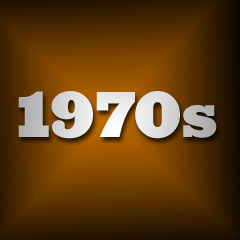
|
![]()
Greatest Films of the 1970s
1970 | 1971 | 1972 | 1973 | 1974 | 1975 | 1976 | 1977 | 1978 | 1979
Title Screen Film Genre(s), Title, Year, (Country), Length, Director, Description 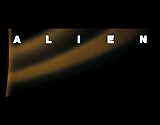


Alien (1979, UK), 116 minutes, D: Ridley Scott
Director Ridley Scott's grisly, futuristic, suspenseful, atmospheric, memorable and popular science fiction/horror film featured terrific sets designed by surreal artist H. R. Giger. It was followed by three sequels, including James Cameron's Aliens (1986), Alien3 (1992), and Alien Resurrection (1997). Its plot was about the intergalactic journey of a claustrophobic, commercial space cargo freighter, the Nostromo. After its mission to collect 20 million tons of mineral ore, it was on its return to Earth, when the crew was awakened by the main computer (dubbed "Mother"). The crew included second-in-command warrant officer heroine Ripley (Sigourney Weaver in her starring debut role), Kane (John Hurt), leader Dallas (Tom Skerritt), Ash (Ian Holm), and others, who were awakened from hyper-sleep to investigate a distress radio signal on a mysteriously bleak, uncharted dead planet with a crashed alien spacecraft. Three of the seven crew donned space suits and took a shuttle vehicle to investigate. In the interior of the massive downed spaceship, they found large egg-shaped pods. One of the quivering, fleshy lifeforms (with tentacles) burst forth from one egg-pod, pierced through Kane's helmet, and attached itself to his face. Although he appeared asphyxiated, he was somehow supplied with oxygen. Back on board the Nostromo, over Ripley's objections about quarantining them, the parasitic lifeform presumably incubated inside Kane (as the host body), and then ultimately burst from his gut as a miniature toothy lizard during the film's most memorable 'birthing' sequence. The hideous, indestructible, carnivorous alien creature grew in size, metamorphisized, oozed yellow acidic bile if cut into, and hid within the hyper-tech spacecraft - all the while menacing, hunting, and picking off one crew member after another. Eventually, it was revealed that Ash was an android, and that the crew's true mission all along was to bring back the indestructible lifeform to Earth. In the film's explosive conclusion, tall, self-reliant, resourceful Ripley (in only a skimpy T-shirt and panties) outsmarted the primal, lethal monster, and expelled it from the shuttle vehicle into space.

All That Jazz (1979), 123 minutes, D: Bob Fosse




...And Justice For All (1979), 119 minutes, D: Norman Jewison
This blockbuster hit was a satirical, outrageous, lampooning take on the criminal justice system. Idealistic, hot-headed criminal defense attorney Arthur Kirkland (Al Pacino) in Baltimore, MD was called upon to defend by-the-book Judge Henry T. Fleming (John Forsythe), his arch nemesis. Earlier, the Judge had wrongly sentenced and imprisoned Kirkland's criminally-convicted client Jeff McCullaugh (Thomas G. Waites) because of a technicality (Kirkland had filed a motion to reopen the case three days late). Kirkland was also jailed on contempt charges. At the same time, Kirkland was facing the bar's disciplinary committee on ethics charges, while sleeping with Gale Packer (Christine Lahti), a member of the committee. And other problems were occurring: Kirkland's law partner Jay Porter (Jeffrey Tambor) was experiencing a nervous breakdown over some bad judicial decisions, while another of Kirkland's clients - transgendered Ralph Agee (Robert Christian) - committed suicide by hanging after the mishandling of his case. Kirkland was shocked to be forced to represent the Judge when the venerable man was charged with brutal assault and rape charges. (The Judge used blackmail to coerce Kirkland to defend him, by threatening to disclose a serious ethics violation years earlier - a violation of lawyer-client confidentiality. The Judge also promised to reopen the McCullaugh case if Kirkland accepted the case.) During the lengthy proceedings before trial, McCullaugh was repeatedly raped in prison, and eventually retaliated by grabbing a gun and taking two hostages - before he was killed by snipers. The Judge's case was presided over by Judge Francis Rayford (Jack Warden), while the prosecuting attorney was Frank Bowers (Craig T. Nelson). In private, the Judge (after being presented with photographs showing him engaged in S&M with a prostitute), admitted to Kirkland that he was guilty. However, he was able to pass a polygraph test. Incensed by his client's callous attitude (the Judge had casually said he would like to see the "attractive" rape victim again, and he had paid a witness to testify in his favor), it appeared that Kirkland was properly defending his client with his opening statement, but then turned on him with tremendous rage, condemning him for abusing law and order and calling the loathsome judge guilty: "My client, the Honorable Henry T. Fleming, should go right to f--kin' jail! The son of a bitch is guilty! That man is guilty! That man there, that man is a slime! He is a slime! If he's allowed to go free, then something really wrong is goin' on here!..." When Judge Rayford ruled that Kirkland was out of order, he retorted: "You're out of order! You're out of order! The whole trial is out of order! They're out of order! That man, that sick, crazy depraved man raped and beat that woman there, and he'd like to do it again! He told me so!" In the final scene, Kirkland was sitting on the courthouse steps, wondering about his career's future.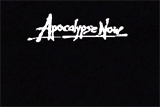



Apocalypse Now (1979), 139 minutes, D: Francis Ford Coppola
Director Francis Ford Coppola's sweeping, surreal, still-controversial Vietnam war epic has been considered by many to be the best war movie of all time, with incredible performances. A revised version, Apocalypse Now Redux (2001) followed. It was a masterful, thought-provoking, pretentious film, with beautifully-chaotic visuals, about the nightmarish, moral madness of the Vietnam War, inspired by the novella Heart of Darkness by Joseph Conrad. The grueling production in the Philippines led to vast budget overruns and physical and emotional breakdowns. In the story beginning in Saigon in 1969, a debauched US Army vet Captain Benjamin L. Willard (Martin Sheen) was awaiting orders for a top-secret mission in a hotel room. He learned he would be sent up the Nung River into the off-limits Cambodian jungle aboard a Navy patrol boat carrying a young, spaced-out crew. His military objective was to assassinate ("terminate...with extreme prejudice") a Buddha-like, renegade Colonel Walter E. Kurtz (Marlon Brando), once a decorated Special Forces officer, who had become an insane demi-god and now ran his own jungle fiefdom, and lorded himself over the native peoples and Montagnard troops. His patrol boat companions included African-American boat commander "Chief" Phillips (Albert Hall), New Orleans cook "Chef" (Frederic Forrest), 17 year-old Bronx ghetto youth "Mr. Clean" (Larry Fishburne), and California surfer-water skiier Lance (Sam Bottoms). During the river journey, the crew met up with hawkish, reckless and gung-ho Lieutenant Colonel Bill Kilgore (Robert Duvall) wearing a black Stetson hat. The surf-loving, flamboyant and fearless Lieutenant Kilgore gave a famous speech amidst blowing yellow smoke while others surfed in celebration: "I love the smell of napalm in the morning... smelled like... victory," (and "Charlie don't surf"). A devastating dawn naval attack by his 9th Air Cavalry unit was choreographed (supplemented with visual/audio components) with the use of napalm on a Vietnamese village (with suspected Viet Cong) by swooping and swarming Huey helicopters, to the tune of Wagner's "The Ride of the Valkyries" blaring over loudspeakers. Afterwards, the group arrived at an isolated US base supply depot at Hau Phat in a surreal nighttime scene brilliantly lit by floodlights; Playboy Bunnies performed in a USO-styled show for sex-starved soldiers. There were further sequences involving the unnecessary machine-gunning massacre of a civilian sampan (with innocent peasants) by the panicky crew, and a bizarre night battle for the besieged, psychedically-lit, temporary Do Lung bridge. At Kurtz' strange jungle compound and outpost inside Cambodia (with severed heads and hanging mutilated bodies in view), Willard first encountered maniacal, fast-talking US freelance photographer (Dennis Hopper), and then was ushered into Kurtz' presence inside a dark temple. In the shadowy confrontation between Willard and an incoherently-mumbling and deranged, overweight and bald Kurtz (weighing hundreds of pounds with head shaven), the Colonel spoke about the 'horrors' he had experienced: "I've seen the horrors, horrors that you've seen. But you have no right to call me a murderer. You have a right to kill me - you have a right to do that - but you have no right to judge me." Although Kurtz encouraged Willard to disobey and challenge his officers, he also urged his own death. Ultimately, Willard emerged from the jungle water and carried out his mission of murder with a machete - interspliced with the natives' ritualistic slaughter of a water buffalo (outraging animal activists). Willard and the catatonic and crazed Lance (the only surviving patrol boat member) departed from the site, hearing Kurtz' last words about wartime atrocities: "The horror, the horror." In some versions of the film (during the end credits), a fiery, large-scale aerial attack was staged to destroy Kurtz' jungle fortress.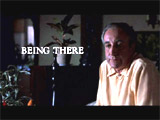

Being There (1979), 130 minutes, D: Hal Ashby
Subtitled "A story of chance," this provocative black comedy was a wonderful tale that satirized politics, celebrity, media-obsession and television, and extolled the wisdom of innocence. The film was directed by director Hal Ashby (already known for Harold and Maude (1971), The Last Detail (1973), Shampoo (1975), Bound for Glory (1976), and the acclaimed Vietnam war film Coming Home (1978)). The politically-satirical, overly-long film about mistaken identity and the television age was adapted from a 1971 novel by Jerzy Kosinski, with Peter Sellers in a chameleon-like role (a fool-turned-prophet transformation) in his second-to-last film. His role was the forerunner to the mentally-challenged Tom Hanks character in Forrest Gump (1994). The subtle film's slogan proclaimed: "Getting there is half the fun. Being there is all of it." It told a placid fable about Chance the Gardener or Chauncey Gardiner (Peter Sellers), a reclusive, emotionless, illiterate, passive, and simple-minded gardener who was well-groomed, fed on schedule, and dressed in custom-tailored suits. He had lived his whole sheltered life within the walled, Washington, DC estate of an eccentric millionaire named Jennings. His only knowledge of the "real" outside world, an encroaching inner-city ghetto area, was through watching television. After his employer died, he wandered out into the street in a daze with his TV's remote-control to aid him. When his leg was injured in an accidental mishap, and his name was thought to be "Chauncey Gardiner," he was befriended by Eve Rand (Shirley MacLaine), the wife of dying billionaire industrialist Benjamin Rand (Melvin Douglas). Chauncey's black maid-cook Louise (Ruth Attaway) cynically and contemptuously knew the truth about the retarded Chance/Chauncey Gardiner and the false accolades he would eventually receive: ("And I'll say right now, he never learned to read and write. No, sir. Had no brains at all. Was stuffed with rice pudding between the ears. Shortchanged by the Lord, and dumb as a jack-ass. Look at him now!"). Quiet and unassuming simpleton Chauncey even caught the attention of none other than President 'Bobby' (Jack Warden). His simple statements about gardening were mis-interpreted as profound and wise political-economic advice: ("As long as the roots are not severed, all is well, and all will be well in the garden....In a garden, growth has its season. First comes spring and summer, but then we have fall and winter. And then we get spring and summer again....There will be growth in the spring"). His new-found popularity led to talk-show appearances, insider parties, book publisher advances, and the potential to become a presidential candidate. The film's ending took place during the memorial funeral of sickly businessman-financier Benjamin Turnbull Rand, while one of the pallbearers discussed the protagonist's bid for the Presidency: "I do believe, gentlemen, if we want to hold on to the Presidency, our one and only chance is Chauncey Gardiner." In the mystical, incongruous conclusion (accompanied by off/on-screen voices), the totally innocent idiot Chance-Chauncey Gardiner, who had wandered away from the ceremony into a wooded area closeby, blithely stepped onto a pond and literally walked on the water. He tested the depth of the water with the length of his umbrella - and then continued walking away from the camera. The final words of the film were delivered by the President at the funeral, and were heard from a distance: "Life is a state of mind."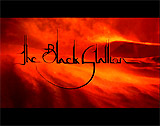

The Black Stallion (1979), 118 minutes, D: Carol Ballard
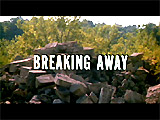


Breaking Away (1979), 100 minutes, D: Peter Yates
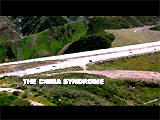


The China Syndrome (1979), 122 minutes, D: James Bridges
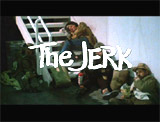
The Jerk (1979), 94 minutes, D: Carl Reiner
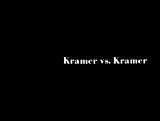


Kramer vs. Kramer (1979), 104 minutes, D: Robert Benton
Robert Benton's sensitive, tear-jerking Best Picture-winning marital drama was about a dysfunctional yuppie family. Ted Kramer (Dustin Hoffman), a workaholic NYC ad executive, suffered an abrupt break-up with unfulfilled, bored and depressed wife Joanna (Meryl Streep). The emotionally-unstable Joanna walked out on him, stating that she was unhappy and needed to find herself. Suddenly, he was propelled into the uncomfortable paternal role of single dad with young 6 year-old son Billy (Justin Henry), needing to take on a nurturing gender role, and balancing demanding career obligations with parenthood (which ultimately meant that Ted was fired from his demanding ad job, but found other less profitable work). However, he was able to establish a very close bond with Billy. But then, about 15 months later, estranged ex-wife Joanna unexpectedly returned to take their son away with her, setting up a nasty child-custody battle in the court. The presiding judge was Judge Atkins (Howland Chamberlain). During her testimony, Joanna argued that she had now regained her self-esteem, was earning a decent salary, and had taken a steady lover. Ted's friend, neighbor and soul-mate Margaret (Jane Alexander) testified that Ted made a great father, although she admitted that she had counseled Joanna to leave if she was unhappy. Ted made an eloquent and heart-felt court plea - defending his right to have custody of his son over Joanna, and his admission that he was not a perfect parent: "My wife, my ex-wife, says that she loves Billy, and I believe she does, but I don't think that's the issue here. If I understand it correctly, what means the most here is what's best for our son. What's best for Billy...Billy has a home with me. I've made it the best I could. It's not perfect. I'm not a perfect parent. Sometimes I don't have enough patience because I forget that he's a little kid. But I'm there. We get up in the morning and then we eat breakfast, and he talks to me and then we go to school. And at night, we have dinner together and we talk then and I read to him. And, and we built a life together and we love each other. If you destroy that, it may be irreparable. Joanna, don't do that, please. Don't do it twice to him." However, the Judge ruled in favor of mother Joanna - Ted lost custody, had to pay child support, and was granted limited visitation rights. In the film's unexpected concluding scene, Joanna met with the persevering Ted after winning custody and was about to take Billy away. But then, she backed down with a sudden change of heart when she realized father-and-son's close bond. She decided that Billy should remain with him in his true home.


Mad Max (1979, Australia), 93 minutes, D: George Miller



Manhattan (1979), 96 minutes, D: Woody Allen
Actor/director Woody Allen's semi-autobiographical, mature, wide-screen B/W, tragi-romantic comedy/drama, with themes of infidelity, romance and hypocrisy in relationships, was enhanced by a George Gershwin score. It was set in Allen's beloved urban NYC and within a group of neutoric and intellectual Manhattanites. The principal character was 42 year-old, twice-divorced neurotic TV comedy writer Isaac "Ike" Davis (Woody Allen) who had turned from his successful successful comedy-writing career to write his first serious novel, titled Decaying Values, about the deterioration and corruption of contemporary society when compared to past generations. He was part of the burgeoning societal problem, by dating a sweet, innocent, 17 year-old, private HS drama student named Tracy (Best Supporting Actress-nominated Mariel Hemingway), 25 years younger than he was. His bi-sexual, divorced, feminist ex-wife Jill (Meryl Streep), who was writing a confessional expose about their marriage/divorce (entitled Marriage, Divorce, and Selfhood) and had acquired a film-rights deal. Jill lived with her lesbian partner Connie (Karen Ludwig) and was raising his young son Willie. Isaac met Mary Wilke (Diane Keaton), the pseudo-intellectual mistress of his guilt-torn best friend Yale Pollack (Michael Murphy) - who was married to Emily (Anne Byrne). Yale was a bundle of contradictions - his goal was to start a literary magazine, save money to write a book on Eugene O'Neill, and buy a Connecticut country home, but he instead bought a sports car. Initially, Isaac disapproved of their extra-marital affair and Mary's personality but then became attracted and fascinated by her and began his own affair with her. In a heartbreaking soda fountain scene, he confessed his affair to a tearful Tracy and urged a break-up by encouraging her to study acting in London, but later regretted his foolhardly decision after his dalliance with Mary soon fell apart when she returned to Yale. The film concluded with Isaac's hopeful and more optimistic musings (into a tape recorder) about what made "life worth living."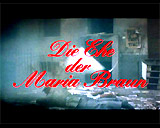

The Marriage of Maria Braun (1979, W.Germ.) (aka Die Ehe Der Maria Braun), 120 minutes, D: Rainer Werner Fassbinder
New German cinema's auteur Rainer Werner Fassbinder found further recognition with this influential melodrama - a parable about survival in post-war Germany. Hanna Schygulla starred as the shrewd and ambitious title character, a symbol of the entire nation, who thrived as a career woman at the same time that the country emerged into a period of corruption and decadent prosperity. The resourceful, adaptive and opportunistic Maria used her sexuality and beauty to achieve success with a string of men, resulting in a get-rich-quick rise to capitalistic power - at a terrible personal price. This intelligent and challenging film was the first of a so-called BRD trilogy, followed by Lola (1981) and Veronika Voss (1982).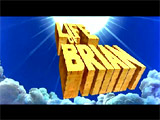


(Monty Python's) Life of Brian (1979, UK), 93 minutes, D: Terry Jones
Monty Python's satirical and insightful version of the New Testament began with the three wise men at the wrong manger with a second "Messiah."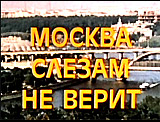

Moscow Does Not Believe in Tears (1979, Soviet Union) (aka Moskva Slezam ne Verit, or Москва слезам не верит), 140 minutes, D: Vladimir Menshov
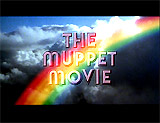



The Muppet Movie (1979), 95 minutes, D: James Frawley
Director James Frawley's great children's film, a comedy-musical-fantasy and road movie hybrid, was the first in a series of full-length, feature-film Muppet movies, marking a smooth transition, first on Sesame Street (1969-present), and then on Jim Henson's syndicated TV show The Muppet Show (1976-1981), and finally on the big screen. Other movies in the franchise included The Great Muppet Caper (1981), The Muppets Take Manhattan (1984), The Muppet Christmas Carol (1992), Muppet Treasure Island (1996), Muppets from Space (1999), The Muppets (2011), and Muppets Most Wanted (2014). The entertaining film was deliberately filled with cheesy puns, sight gags, one-liners and jokes (i.e. turning left at the literal fork in the road), numerous celebrity cameos (from Hollywood's Golden Age through to hip comedians and actors of the time), and astonishing puppetry tricks. The film began with a rowdy group of Muppets in a Hollywood studio's screening room for a private viewing to watch a film-within-a film - the rags-to-riches origins of Kermit the Frog (voice of Jim Henson) in a Georgia swamp, with the image of him strumming a banjo and singing the Oscar-nominated "The Rainbow Connection." The film's plot followed Kermit after he was approached by vacationing Hollywood talent scout Bernie (Dom Deluise) in a rowboat, and handed a Daily Variety advertisement encouraging him to come to Hollywood and find success in professional show business ("All frogs wishing to become rich and famous"). Kermit decided to embark on a cross-country trip to Hollywood, California, encountering other bizarre Muppets who joined him along the way. Additional Muppets included unfunny, clownish song-and-dance Fozzie the Bear (voice of Frank Oz), silly, chicken-loving plumber Great Gonzo (voice of Dave Goelz), Gonzo's girlfriend Camille the Chicken (voice of Jerry Nelson), Dr. Teeth (also Henson) and the Electric Mayhem Band, pianist Rowlf the Dog (also Henson), and Kermit's future vain, preening and explosively violent sweetheart Miss Piggy (also Oz), with whom he experienced love-at-first-sight. During their journey in Fozzie's 1951 Studebaker, they were pursued by villainous restaurateur Doc Hopper (Charles Durning) (a greedy KFC Colonel Sanders) and his insane, German accented mad-scientist assistant Professor Max Krassman (Mel Brooks). Hopper was the owner of a French-fried frogs' legs fast-food franchise, who wanted Kermit to be employed for him as a spokesperson for his business chain. When Kermit refused ("All I can see are millions of frogs on tiny crutches"), he was abducted and a failed attempt was made to change Kermit's mind through electronic brainwashing. Ultimately, there came a western-styled showdown in a ghost town between cowboy-costumed Kermit and Hopper who threatened: ("All right, Frog, one last chance. You're gonna do my TV commercial live or stuffed"); Kermit replied: ("Hopper, what's the matter with you? You gotta be crazy chasin' me half-way across the country. Why are you doing this to me?"). When Doc Hopper expressed his desire to own a thousand frog-leg restaurants, Kermit replied: ("I've got a dream too. But it's about singing and dancing and making people happy. That's the kind of dream that gets better the more people you share it with. And, well, I've found a whole bunch of friends who have the same dream. And, it kind of makes us like a family. You have anybody like that, Hopper? I men, once you get all those restaurants, who're you gonna share it with? Who are your friends, Doc? Those guys? I got lots of friends"). In the deus ex machina ending, Animal (also Oz) grew to giant size after swallowing InstaGrow pills and scared off Doc Hopper. In Hollywood, studio executive Lew Lord (Orson Welles) instructed his secretary (Cloris Leachman): "Miss Tracy, prepare the standard 'rich-and-famous' contract for Kermit the Frog and company." In the climax during script practice, Gonzo crashed into a prop rainbow, and an explosion blew a hole in the roof of the studio, causing a rainbow to shine through the studio set ceiling onto the cast; the entire Muppet group sang a reprise of "The Rainbow Connection" ("Life's like a movie, write your own ending, keep believing, keep pretending, we did what we set out to do...") - interrupted when Sweetums (voice of Richard Hunt) burst through the film's screen into the theater where the rest of the Muppet cast was watching the film: ("I just KNEW I'd catch up to you guys!"). There were additional end credits antics of the Muppets, concluding with Animal bursting through the "THE END" screen and telling the audience: "Go home! Go home! Bye-bye!"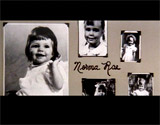

Norma Rae (1979), 110 minutes, D: Martin Ritt
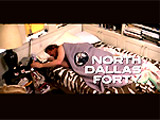

North Dallas Forty (1979), 119 minutes, D: Ted Kotcheff
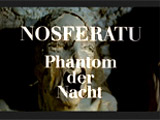
Nosferatu: The Vampyr (1979, W. Germ./Fr.) (aka Nosferatu: Phantom Der Nacht, or Nosferatu: Phantom of the Night), 107 minutes, D: Werner Herzog
Werner Herzog's expressionistic tribute version of the classic Bram Stoker tale and F.W. Murnau's silent Nosferatu (1922) told about tortured, bald, rat-faced and pointy-eared Count Dracula/Nosferatu (Klaus Kinski). The vampire's first attempt to take pure and virginal Lucy Harker (Isabelle Adjani) failed when she refused his entreaties. Later, however, she sacrificially offered herself up to the vampire - a ploy to vanquish Dracula's evil. With a pale face and wearing a white gown, she was lying perfectly still and awaiting his 'kiss.' As he groped her breast with his long fingered-hand, he slowly descended to bite her neck and feed upon her blood. Her lethal strategy to keep him there paid off - the rising sun's light from her window sealed the Count's fate.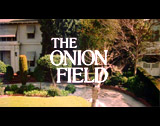


The Onion Field (1979), 126 minutes, D: Harold Becker
This crime drama was about the prolonged miscarriage of justice. It was based on a true series of incidents, recounted in LAPD Sergeant Joseph Wambaugh's 1973 book. It told about the 1963 kidnapping of two plainclothes officers in an unmarked car in Hollywood by two known criminals, ending in the death of Officer Ian James Campbell (in an 'onion field' near Bakersfield, CA). The film followed the events of the true-case and the book fairly faithfully -- two LA detectives (both married): inexperienced Karl Hettinger (John Savage) and veteran cop Ian Campbell (Ted Danson in his debut film) were kidnapped by criminals Greg Powell (James Woods) and Jimmy Smith (aka "Jimmy Youngblood") (Franklyn Seales) in Hollywood. They were driven to an onion field near Bakersfield, where Campbell was shot and killed (after being shot initially, he was also shot 4 times in the chest while on the ground), while Hettinger managed to escape into the darkness. After Powell was apprehended by police and interrogated by Sgt. Pierce Brooks (Ronny Cox), he blamed partner Smith for the murder. Smith was arrested, who then blamed Powell for the crime. Both were charged with first-degree murder. Due to the physical and emotional stress of the case, and the multiple times that he had to defend his actions (and face criticism and tormenting guilt for Campbell's death) and relive the past, Officer Hettinger suffered depression and a nervous breakdown and was forced to resign. His symptoms included suicidal thoughts, impotence, petty shoplifting, weight loss, and nightmares - he eventually recovered. Meanwhile, the two suspects were tried together, convicted by Hettinger's eye-witness testimony, and sentenced to death row. However, the California Supreme Court reversed the conviction, arguing, in part, that the two should have been tried separately. Powell became adept at appeals and exploiting the legal system by delays, constant motions, petitions, and objections, and the two evaded prosecution for years. The two faced a retrial (separately) in 1969. Ultimately, the sentence for both was reduced to life imprisonment when capital punishment was abolished in California.
Real Life (1979), 99 minutes, D: Albert Brooks
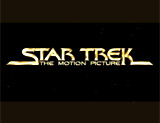

Star Trek - The Motion Picture (1979), 132 minutes, D: Robert Wise



10 (1979), 121 minutes, D: Blake Edwards
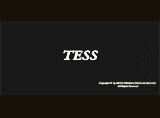

Tess (1979, Fr./UK), 170 minutes, D: Roman Polanski


The Tin Drum (1979, W. Germ/Fr./Pol./Yugo.) (aka Die Blechtrommel), 142 minutes, D: Volker Schlondorff
Director Volker Schlondorff's bizarre, visually-compelling drama was based on one half of Gunter Grass's highly acclaimed 1959 novel, and became a Best Foreign Language Film Academy Award winner. This dark, nightmarish fairy-tale film was about war's madness as the Nazis came to power in the 1920s, told through the eyes of young Oskar Matzerath (David Bennent). He was blessed with auditory clairvoyance and lived in the "free city" of Danzig on the Polish-German border. At the age of 3, he received a tin drum for his birthday - and then after an accident, willed himself to not grow any further. He released his anger by pounding on his drum and letting go a piercing scream (powerful enough to shatter glass) to drown out the horrors, both with greater frequency as Danzig was affected by war and Nazi occupation.

The Warriors (1979), 90 minutes, D: Walter Hill